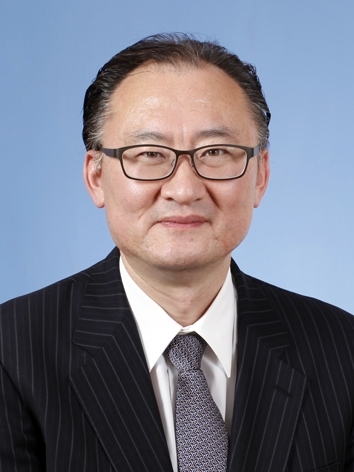Seoul Defense Dialogue, set to wrap up its three-day run today, is in its sixth year. The scale of the annual event has doubled since 2012, when it was first launched with participants from 15 countries and two international organizations. This year, the number has increased to 37 countries and three international organizations. SDD is Korea’s only high-level multilateral security dialogue and has developed into one of the top three security dialogues in Asia along with Shangri-la Dialogue and China’s Xiangshang Forum. However, there is still a long way to go. SDD will have to aim for a role in a unified Korean Peninsula as its long-term goal, but for the short run, it will have to deeply consider its direction during the five-year term of President Moon Jae-in.
 |
Hwang Jae-ho, a professor of International Studies at Hankuk University of Foreign Studies in Seoul. |
First, SDD needs to make full use of its platform capability. The Korean government has recently established the Korea-ASEAN Vice Defense Ministers’ Dialogue and has hosted multiple meetings such as Korea-Africa, Korea-Mekong, UN PKO contributors, Korea-V4 (Slovakia, Czech Republic, Poland and Hungary). Such meetings can be incorporated into SDD as special sessions. For instance, discussions on military interchange and defense cooperation can be carried out under the title of Korea-ASEAN defense cooperation.
Korea should strengthen military ties with middle powers in addition to its relations with US, China, Japan, and Russia. Beside the existing MIKTA countries (Mexico, Indonesia, Turkey and Australia), other significant middle power countries like Canada, Vietnam, Italy and Saudi Arabia should be added to the club of MIKTA.
SDD needs to clearly differentiate itself from other security dialogues. The dialogue should select a theme more related to its home region. If Shangri-la Dialogue is specialized in the South China Sea issue, SDD should focus more on the North Korean crisis. The main theme of the sixth SDD, “Visions for Security Cooperation in an Era of Uncertainty” was appropriate with US President Donald Trump and North Korean leader Kim Jong-un becoming more engaged in a war of words and North Korea’s ballistic missiles and nuclear weapons posing a threat to South Korea, US and Japan. However, it was not enough to address the immediate threats faced by the region. The theme should focus more on the North Korean issue in the future.
SDD should give the impression that officials can update their security information related to the Korean Peninsula only when they actually attend the meeting. For the first time this year, SDD had an official from the US Department of Defense to brief proven facts. It could be good for the dialogue to include a closed briefing session for representatives to share information on North Korea. SDD can also either create one main session in which many nations interested in North Korea can participate or have several special sessions on specific issues such as North Korea’s internal problems, ballistic missile capabilities and nuclear threats.
A shift from quantity to quality is needed. This year, for the first time, SDD included discussions on the influence of the ‘fourth industrial revolution’ on weapons system and warfare and the effects of future warfare on states’ defense policies. Although these are appropriate and important topics, work is needed to give them have more Korean colors.
More specific topics need to be covered. For example, participants can discuss on the North Korean issue, Korea-China-Japan defense cooperation, military build-up on the Korean Peninsula and in Northeast Asia as well as confidence building measures in the region. Cyber security and maritime security which are already regularly discussed should include military implications for Northeast Asia and Korea.
SDD should be able to lead the security discourse. It should select and dominate creative issues. It would be good to invite military strategists or theorists who have deep understandings of military security trends to lead the discussions.
The content and suggestions discussed in the sessions should be able to be incorporated into policies. Discussions should not only be focused on issues such as North Korean missile threats but they should also cover possible solutions and policy responses. Sessions can be organized together with relevant countries to select a topic that can help achieve joint performance or coordinate policies.
SDD should naturally induce interest and participation of related countries instead of forcing attention. The Chinese military delegation did not attend the dialogue both this year and last year due to the ongoing tussle over South Korea’s deployment of the US’ Thermal High Altitude Area Defense system. SDD should not beg for participation of those who are not willing to come. Instead, the dialogue should create its own charm to make them feel that they are losing voice and are harming their national interests.
The scale of SDD has grown but it is important to fill it up with good content. In order not to hear the Korean proverb, “There is nothing to feast at parties that are rumored to be the best,” in-depth discussions and joint action plans will need to be carefully organized. Only then the SDD will be able to enhance the competitiveness and contribution of Korea’s national defense power and become the blue ocean of Korean diplomacy.
By Hwang Jae-ho
The writer is a professor of international studies at Hankuk University of Foreign Studies in Seoul, and is a chief organizer of this year’s SDD. – Ed.





![[Exclusive] Hyundai Mobis eyes closer ties with BYD](http://res.heraldm.com/phpwas/restmb_idxmake.php?idx=644&simg=/content/image/2024/11/25/20241125050044_0.jpg)
![[Herald Review] 'Gangnam B-Side' combines social realism with masterful suspense, performance](http://res.heraldm.com/phpwas/restmb_idxmake.php?idx=644&simg=/content/image/2024/11/25/20241125050072_0.jpg)

